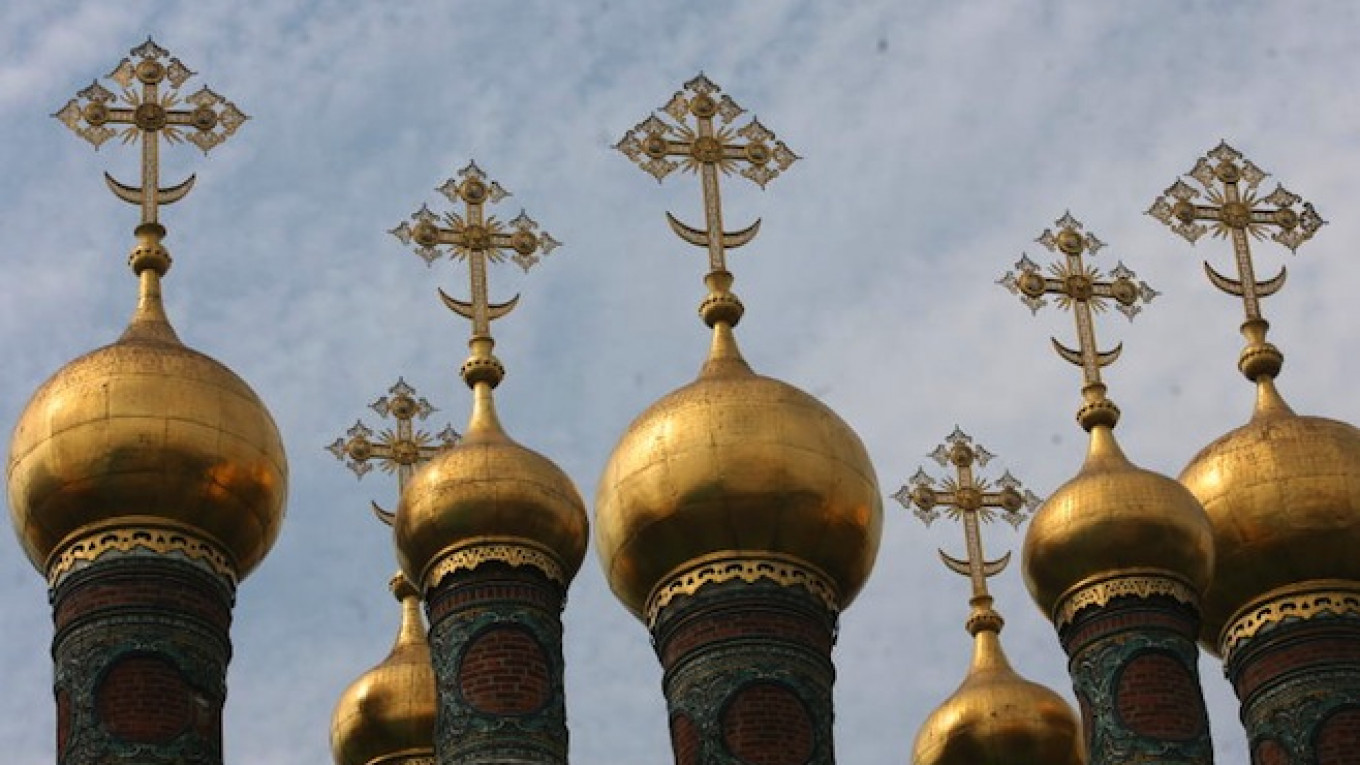The Russian Orthodox Church is to get a total of 2 billion rubles ($40 million) from the federal budget for the creation of spiritual enlightenment centers, a news report said Friday.
Deputy Culture Minister Vladimir Aristarkhov said earlier this month that 958 million rubles ($19.4 million) would be allocated for such centers next year, the RBC newspaper reported, citing a letter sent by the minister to deputies from the ruling party United Russia. The funding is part of a federal program aimed at "strengthening the unity of the Russian nation" that has a total 2015 budget of 1.4 billion rubles, the newspaper said.
In May, 1.1 billion rubles was distributed among 23 newly registered NGOs connected to the Church for the purpose of setting up the centers across Russia, from Irkutsk to Dagestan, RBC reported, citing the Justice Ministry's list of NGOs. The newspaper cited an unnamed source as saying the NGOs had been created as a go-between to avoid violating the Constitution, which states that Church and state are separate in Russia.
Next year, 358 million rubles ($7.2 million) — more than one-third of the total funds allocated — will be spent on setting up a spiritual enlightenment center on the island monastery of Valaam, Aristarkhov told the deputies in the letter cited by RBC. That figure was previously lower, but was increased after a trip to Valaam by President Vladimir Putin — a frequent visitor to the island — in April this year, RBC cited a source in the Church hierarchy as saying.
After decades of repression and persecution under the officially atheist Soviet regime, the resurgent Orthodox Church has developed an increasingly cozy relationship with the Kremlin in recent years. Shortly before the presidential election in 2012 that saw Putin return to the country's helm, Patriarch Kirill, the head of the Orthodox Church — and an alleged former KGB agent, like the president himself — described Putin as a "miracle from God."
The Church has come under fire for both its close relationship with the state and allegations of luxury lifestyles among high-ranking clergy, including a high-profile incident in which a photo of the Patriarch wearing a $30,000 watch was digitally altered to remove the timepiece — but not its telltale reflection in the surface of the table at which he was sitting.
The Russian Orthodox Church's revenue last year was 4.6 billion rubles, the Izvestia daily reported in July, citing tax data.
While 68 percent of Russians consider themselves Orthodox Christians, only one in 10 believers go to church at least once a month, and more than half have never read the bible, a nationwide poll by the state-run Public Opinion Foundation showed in July.
A Message from The Moscow Times:
Dear readers,
We are facing unprecedented challenges. Russia's Prosecutor General's Office has designated The Moscow Times as an "undesirable" organization, criminalizing our work and putting our staff at risk of prosecution. This follows our earlier unjust labeling as a "foreign agent."
These actions are direct attempts to silence independent journalism in Russia. The authorities claim our work "discredits the decisions of the Russian leadership." We see things differently: we strive to provide accurate, unbiased reporting on Russia.
We, the journalists of The Moscow Times, refuse to be silenced. But to continue our work, we need your help.
Your support, no matter how small, makes a world of difference. If you can, please support us monthly starting from just $2. It's quick to set up, and every contribution makes a significant impact.
By supporting The Moscow Times, you're defending open, independent journalism in the face of repression. Thank you for standing with us.
Remind me later.






